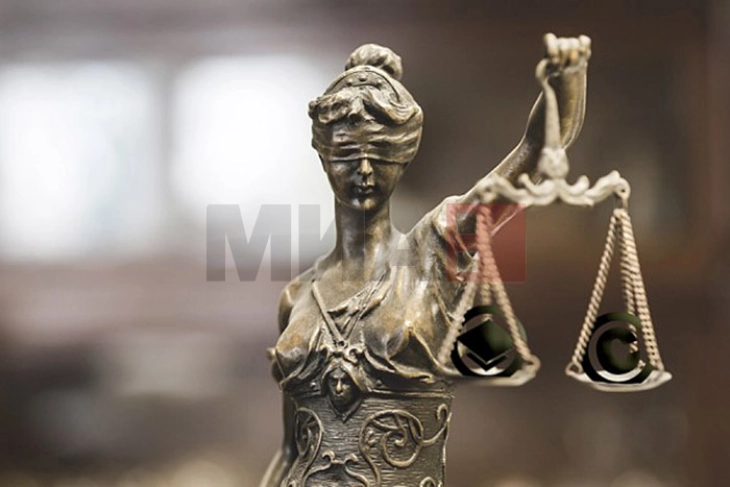Aggeler: Letter to help prevent former politicians from picking up phone to try and get a decision preferable to them
- The United States has provided over a billion dollars in the last 30 years to this country in non-military assistance, including with media projects and activities. Over half of that billion dollars has gone to support rule of law and good governance, including the judiciary. We estimate that over 80 percent of prosecutors and judges in this country have participated in one of our programmes. When we look at that as an investment, it is not a very good return on our investment, says United States Ambassador Angela Aggeler in an interview with MIA.
- Post By Ivan Kolekevski
- 14:26, 19 May, 2023

Skopje, 19 May 2023 (MIA) - The United States has provided over a billion dollars in the last 30 years to this country in non-military assistance, including with media projects and activities. Over half of that billion dollars has gone to support rule of law and good governance, including the judiciary. We estimate that over 80 percent of prosecutors and judges in this country have participated in one of our programmes. When we look at that as an investment, it is not a very good return on our investment, says United States Ambassador Angela Aggeler in an interview with MIA.
Ambassador Aggeler refers to the letter she sent to judiciary and the executive, which caused turmoil, even a change of the Judicial Council president. She felt it very important to send that letter to the Minister of Justice and to copy a number of others in the Government and other foreign ambassadors, because the U.S. Embassy has a number of officers who look at justice issues.

"It is my hope, and I offered in that letter and in many public conversations that I am happy to do what I can and with the team at the embassy, to talk through some of those processes, so that what we are investing in this country actually helps the people of this country and is not some process where former politicians pick up the phone to try and get a decision on a case that is preferable to them," says Aggeler.
If we are to continue to invest in the judicial sectors of this country, she adds, we would like to see that it makes a difference and that there is integrity and a system.
"Because again this comes down to the citizens of this country and they deserve a judiciary where they understand the process, they understand what happens, and it’s not just simply a decision is suddenly made that has somebody put into a position for which they are wholly unqualified without any kind of an explanation," says Aggeler.
The U.S. Ambassador notes that corruption and crime are a major challenge that is facing the country right now, whereas the move towards the European Union and the reforms that come with that process address many of these issues.
"I believe that there are those of goodwill in this country who are also tired of corruption. I think everybody is. I haven’t met a single Macedonian who is fine with corruption. It is my very great hope that the people will say ‘enough’ and that they will demand of their institutions that these issues are addressed in a way that it’s open and transparent, and they can hold leaders, businesspeople, others within the society accountable if they are not following the rules," says Aggeler.
On the effect of the U.S. blacklist, she says it is not enough, because at the end of the day, even if the United States determines that somebody is a corrupt actor, is a corrupt official, is harming democracy or society by their illegal actions, they call them out "but we are not going to go in and arrest them."
"So we can say ‘We as the United States will not allow you to enter our country anymore and we can impose certain financial and other sanctions. Again, this is something that after the Prime Minister and the Foreign Minister left Washington I had series of meetings also internally, to talk about where we are on some of these sanctions issues. In and of itself, is someone’s name on a blacklist going to change that behavior – not necessarily. But this is again where the role of the citizen of this country, the individual who is tired of seeing people who benefit through illegal structures and illegal activities, is to hold them accountable. Hopefully, we want to assist with that in calling this out, because we have to by law. It is a very specific process but we also hope that the citizens of this country will also demand of their leaders that action also be taken," underlines Ambassador Aggeler in the interview.
Photo: MIA







